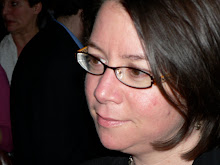My father’s affairs were simple and orderly. His estate has four items: a checking account, a savings account, an IRA, and a loan to us for the house that we live in. I know everything about all of these items (including account numbers and passwords) and have access to every piece of documentation, current and historical, because my dad was a perfect archivist. I am the executor and the sole beneficiary, and no one is going to contest anything. The business of his estate could not possibly be easier.
Even so it’s not very easy. To start, I went down to the bank where he had his checking account with the will and the death certificate, expecting them to transfer his funds to my account. Nope. Did you know that a person’s will is not the kind of legal document honored by a bank? I did not. Turns out the will is an expression of the deceased’s wish that I be the executor and beneficiary; it takes a court to establish that as a reality. The bank was not able to tell me exactly what documents they need, other than “court documents”; that was up to me to figure out.
With some online research I was able to determine that I needed a “letter testamentary,” and I also found instructions for how to do this without a lawyer. The actual experience down at the King County Superior Court was Brazil-like in its absurd bureaucracy: various documents with long names had to be filed and stamped and notarized and signed and copied, all in a very specific order, on two different floors of the courthouse, some with this clerk, some with that clerk, and some with the judge. There were specific associated rituals – for example, the clerk stamps these, but you stamp these yourself, using the clerk’s stamp. Why? Who knows. Stamp stamp. It all went pretty smoothly except that the will did not appear to some people to be original: it looked to them like a “very good Xerox.” I said it was original. They looked askance. I waited. The clerk ran her fingers over the signatures and said, “We’ll see what the judge says.” The judge looked at me over his glasses and said it looked like a copy. I said again that it was an original. He asked me if I had any siblings, or if my father had a life partner at the time of his death. I said no. He signed the order, and I took it back to the clerk, who said, “The judge accepted this will?” Yes he did. Thus I obtained my letter testamentary, stating that I am the executor. What about my being the sole beneficiary? Apparently that is not the court’s business – that’s just up to the executor, to dispose of the assets properly. I would never have been able to predict which of these things would need court orders and which are left to me. At least it didn’t take all day – in fact I was in and out in an hour. I even found street parking.
I went back to the bank. They accepted all my documents but said they can't give me the money directly; instead, in about three weeks their central processing department will issue a check "to the estate of Stephen J. Scherr." I will open an estate account, deposit this check into it, and then withdraw that money into my own account. This seems supremely pointless to me (why take a perfectly good bank account and put its contents on a paper check made out to the estate that already owned the account?). But I guess it creates a clearer paper trail for the IRS.
Friday, April 1, 2016
Subscribe to:
Post Comments (Atom)


No comments:
Post a Comment